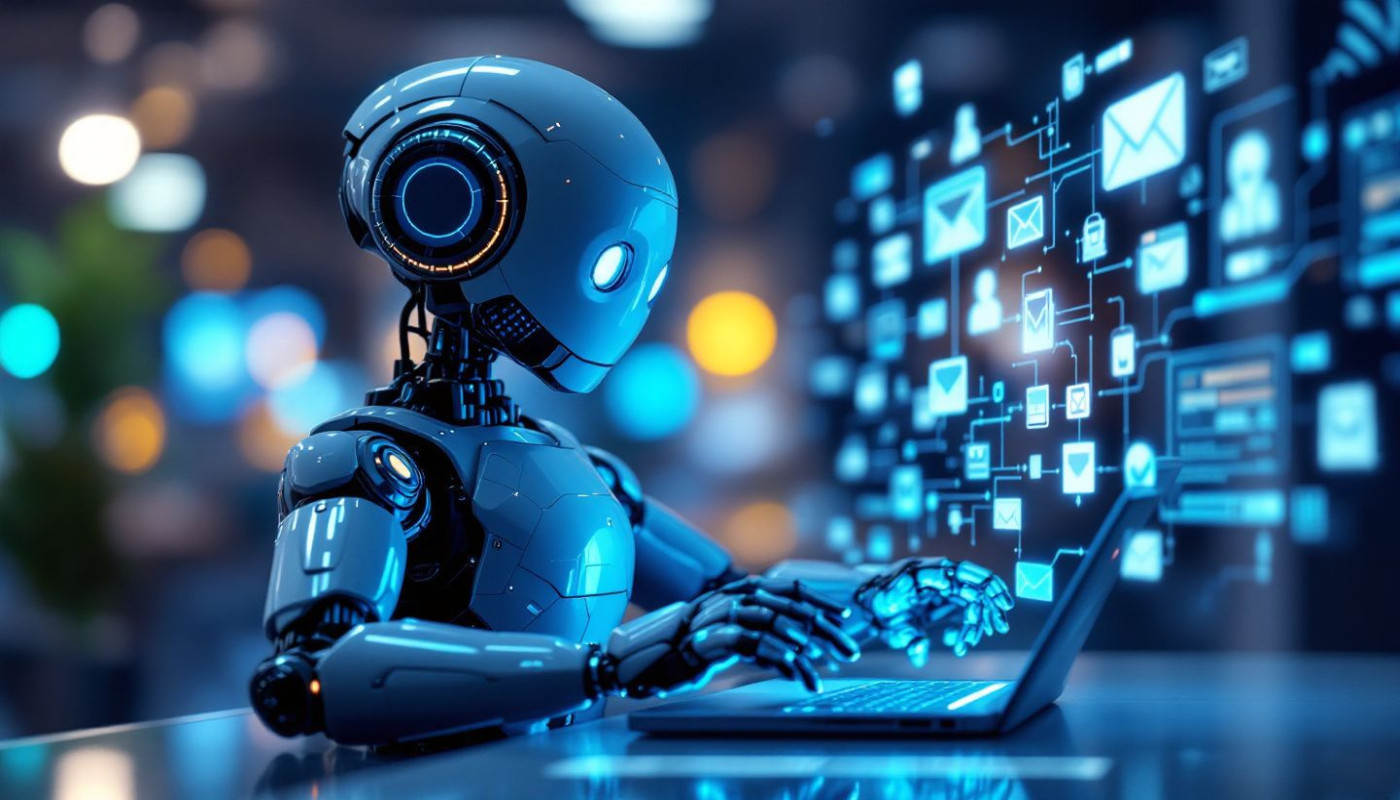Table of contents
In an age where efficiency and automation are at the forefront of technological advancement, the role of chatbots in enhancing the capabilities of Customer Relationship Management (CRM) and Human Resource Information Systems (HRIS) cannot be understated. These AI-driven assistants are revolutionizing the way businesses interact with customers and manage internal processes, offering a glimpse into the future of digital communication and administration. This post delves into the transformative power of integrating chatbots, revealing how they can streamline operations and elevate organizational productivity. Read on to discover the compelling benefits that await.
Revolutionizing Customer Interactions with Chatbots
The integration of chatbots into Customer Relationship Management (CRM) systems has significantly transformed the landscape of customer interactions. These sophisticated tools are designed to automate support, ensuring that a customer can receive assistance without unnecessary delays. By providing instant responses, chatbots are redefining the standards for response time, directly enhancing customer engagement and satisfaction levels. The application of data analytics also takes a forefront as chatbots gather and analyze customer interactions, equipping businesses with the insights necessary to offer highly personalized service.
Immediate customer support is no longer a luxury but a critical expectation in the fast-paced digital world. Chatbots, with the help of natural language processing, can decipher and understand customer inquiries, allowing them to respond accurately and efficiently. This not only streamlines the process of addressing customer needs but also empowers companies to keep their customer service operations running around the clock. In discussing the advantages of chatbots in CRM, the Director of Customer Service would provide valuable insights into how these tools empower teams to optimize engagement strategies and build stronger relations with their clientele. For those looking to enhance their CRM systems with the latest in automated customer support technology, you can navigate to this site for further information.
Streamlining HR Operations with AI Assistance
The advent of chatbots in the field of Human Resources Information Systems (HRIS) has marked a significant leap in streamlining HR operations. By efficiently handling routine inquiries, these AI-powered assistants transform the landscape of HR automation. Chatbots serve as the first line of response, swiftly automating answers to recurrent questions, which drastically reduces the response time for employee concerns. This integration of technology is particularly beneficial in employee onboarding, where a multitude of repetitive yet vital information can be communicated through self-service portals. These portals, empowered by chatbots, offer new hires an easily navigable, interactive platform to acquaint themselves with company policies and procedures.
The incorporation of chatbots not only enhances staff productivity by allowing human HR staff to divert their attention to more intricate tasks but also ensures that employees receive immediate assistance. This balance between automated and human interaction is key in maintaining an effective and employee-centric HR department. Moreover, as machine learning technology progresses, these chatbots evolve, continuously improving their ability to understand and process user requests. The resulting efficiency is invaluable, and a Head of Human Resources could attest to the remarkable impact that such an AI integration can have on organizational workflow and HR efficacy.
Enhancing Data Accuracy and Reporting
Maintaining data integrity within Customer Relationship Management (CRM) and Human Resources Information Systems (HRIS) is paramount for organizations seeking to harness the full potential of their data. Chatbots serve a pivotal role in this regard, as they provide streamlined and accurate data entry services. By minimizing the manual input of data, chatbots significantly reduce the margin for human error, thereby enhancing the overall accuracy of the systems. Automated reporting is another area where chatbots excel. They can swiftly generate comprehensive reports and provide analytics that are instrumental in informed decision-making processes.
With the advanced capabilities of chatbots, organizations can leverage analytics to gain deep insights into customer behavior, employee performance, and other critical business metrics. This level of analysis is not only descriptive but also predictive. Predictive analytics, a sophisticated form of analysis, enables chatbots to forecast future trends based on historical and real-time data, offering businesses a strategic advantage. A Data Analyst or a CRM/HRIS Systems Manager can attest to the transformative impact of integrating chatbots in enhancing data-driven strategies and operations. By ensuring data integrity and providing analytical support, chatbots empower organizations to make decisions that are both strategic and evidence-based.
Scaling Support with Conversational AI
In the dynamic landscape of customer relationship management (CRM) and human resources information systems (HRIS), conversational AI emerges as a beacon of scalability and operational efficiency. Chatbots, powered by this sophisticated AI, are designed to be scalable solutions that can seamlessly adjust to heightened support volume, ensuring that service quality remains uncompromised even during peak periods. Unlike human staff, whose numbers would traditionally need to be augmented to handle additional interactions, conversational AI can scale up without a corresponding increase in workforce size. This aspect of chatbot scalability is especially valuable in CRM and HRIS environments, where interaction volumes can fluctuate unpredictably. The cost-effectiveness of integrating such technology is clear: businesses can maintain high levels of efficiency without incurring the substantial overheads associated with recruiting and training new personnel. For a Chief Technology Officer or Operations Manager, leveraging the scalability of chatbots is a strategic move to enhance service delivery while managing costs effectively, thereby maximizing the potential of both CRM and HRIS platforms.
Continuous Improvement through Feedback Loops
At the heart of modern Customer Relationship Management (CRM) and Human Resource Information System (HRIS) platforms is the concept of continuous learning. This is particularly evident in the use of chatbots, which have become an indispensable tool in enhancing user satisfaction and operational fluency. Through the implementation of feedback loops, chatbots are achieving service optimization in a way that was previously unattainable. By programming chatbots to critically analyze the outcomes of their interactions, they can identify and learn from errors, refining their algorithms for more accurate future engagements.
These advancements are not static; rather, they embody an iterative learning process. As chatbots process large volumes of interactions, they gather invaluable insights, which contributes to an ongoing enhancement of their conversational abilities. This enhanced interactions approach does not merely fine-tune responses but is pivotal in evolving the core functionalities of CRM and HRIS systems towards greater efficiency. A Director of AI and Machine Learning might emphasize that this sophisticated programming not only equips chatbots with the ability to simulate human-like interactions but also ensures that with each conversation, they grow more adept at understanding and fulfilling user needs.
Similar

How To Evaluate And Select Kubernetes Upgrade Methods

How Does Modern Email Verification Enhance Data Security?

Exploring The Impact Of Real-Time 2D/3D Ultrasonic Velocimetry On Fluid Dynamics

How To Identify Signs Of A DDoS Attack And Act Swiftly

How Free Membership Management Tools Enhance Nonprofit Operations

Exploring The Creative Potential Of Online AI Image Generators

How Automated Patch Management Systems Streamline Server Updates And Enhance Security Compliance

Revolutionizing Business Processes With AI-driven Workflow Automation

Understanding The Basics Of GPT: What It Is And How It Works

Unveiling Quantum Computing: The Future of Encryption

Unraveling Blockchain's Potential Beyond Cryptocurrency

